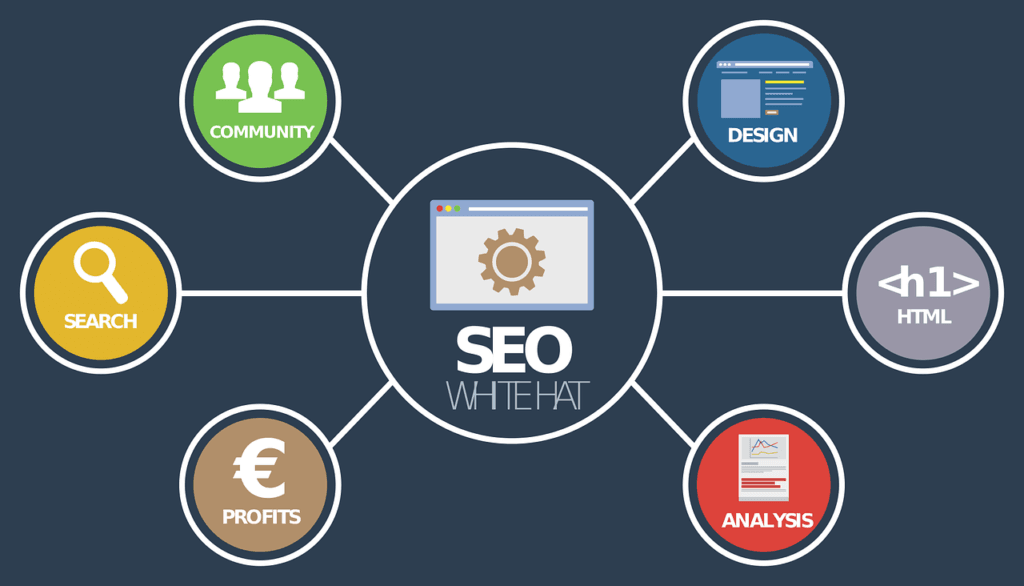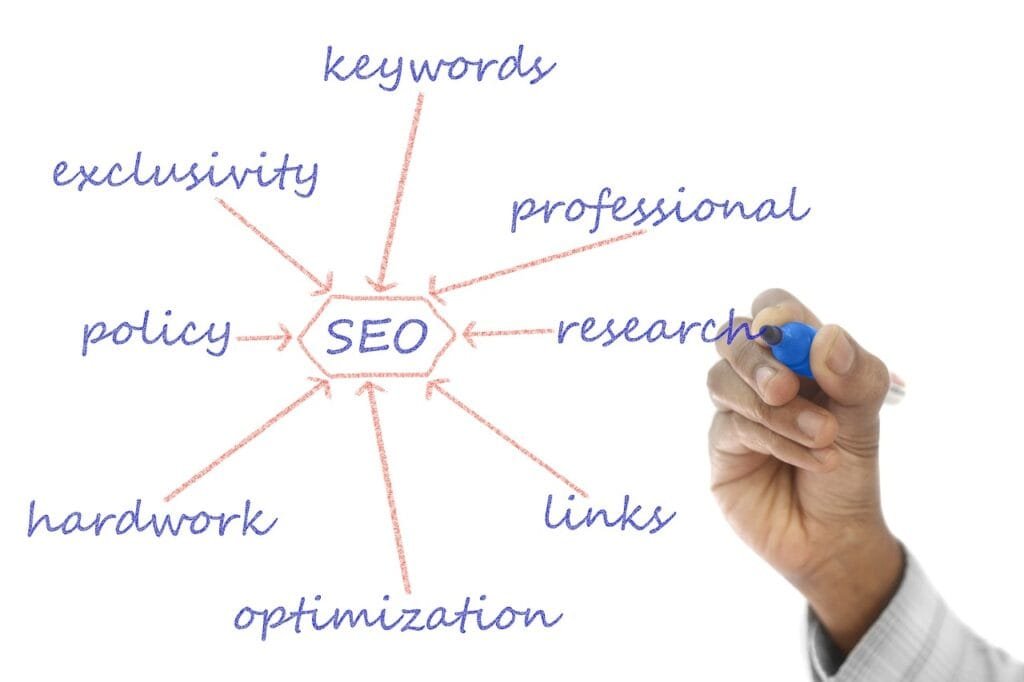This Article has been revised, edited and added to, by Poulomi Chakraborty.
- Unmasking Meta Tags: The Silent SEO Sentinels
- What Are Meta Tags?
- The SEO Significance
- Different Types of Meta Tags
- Understanding the Depth of Meta Tags Beyond the Basics
- Crafting Meta Tags with Semantic Richness
- Aligning Meta Tags with User Expectations
- Incorporating Meta Tags into Broader SEO and Marketing Strategies
- Leveraging Meta Tags for Improved Analytics and Adaptability
- Marrying Keywords with Meta Tags: A Match Made in SEO Heaven
- The Meta Title Tag: First Impressions Count
- Meta Description Tag: Enticing Clicks
- Meta Robots Tag: Guiding Search Engines
- The Art of Keyword Selection for Meta Tags
- Crafting Meta Titles That Capture Attention and Drive Traffic
- Optimizing Meta Descriptions for Higher Engagement
- Aligning Meta Tag Strategy with User Intent
- Fine-tuning Meta Tags: Best Practices for Startups
- Prioritizing Relevance Over Volume
- Staying Updated with Algorithm Changes
- Incorporating Branding
- Using Action Words
- Embracing the Complexity of Meta Tag Optimization
- Integrating Meta Tags with Overall Content Strategy
- Harnessing the Power of Meta Tags for Branding
- Utilizing Meta Tags to Enhance User Experience
- Leveraging Meta Tag Data for Iterative Improvement
- Tools and Resources: Perfecting the Meta Tag Game
- Challenges and Pitfalls: Navigating Common Meta Tag Missteps
- Integrating Meta Tags with Content Strategy: A Symbiotic Relationship
- Aligning Keywords Across Meta Tags and Content
- Complementing Other On-Page SEO Elements
- Guiding Content Creation
- Building a Foundation with Meta Tags and Content Alignment
- Crafting Meta Tags that Reflect Content Depth and Diversity
- Utilizing Meta Tags to Guide User Journeys
- Harmonizing Meta Tags with User Intent and Conversion Goals
- The Future of Meta Tags: Evolving with the Digital Landscape
- Advancements in Search Engine Algorithms
- Voice Search and Meta Tags
- The Role of AI and Machine Learning
- Anticipating Technological Advancements in Search Engine Algorithms
- Leveraging Emerging Technologies to Optimize Meta Tags
- Preparing for Voice Search and Conversational Queries
- Adapting to Global Trends and User Diversity
- In Summary: Meta Tags as Pillars of Startup SEO
Navigating the vast world of Search Engine Optimization (SEO) can feel like charting a course through an ever-evolving landscape. Amidst the diverse strategies startups employ to amplify their digital presence, one foundational element often gets overlooked: meta tags. At first glance, these unassuming snippets of code may seem inconsequential. Yet, when powered by effective keyword research, meta tags can act as catalysts, driving visibility and boosting organic search rankings.
For startups, where every resource counts, and competition is fierce, leveraging meta tags infused with the right keywords can level the playing field. Dive with us into the intricate dance of keywords and meta tags, and discover how this union can supercharge your startup’s SEO game.
Unmasking Meta Tags: The Silent SEO Sentinels
Before delving into the interplay of keywords and meta tags, it’s crucial to understand what meta tags are and the role they play in SEO.
What Are Meta Tags?
Hidden from the casual browser but integral to search engines, meta tags are snippets of text that describe a page’s content. They reside in the page’s code, offering search engines like Google insights into the content’s context and relevance.
The SEO Significance
While users may not see meta tags, search engines do:
- Contextual Understanding: Meta tags help search engines understand the nature and relevance of a page’s content.
- Ranking Factor: Properly optimized meta tags can influence how a page ranks for specific search queries.
Different Types of Meta Tags
Not all meta tags are created equal. Some of the most significant ones for SEO include:
- Meta Title Tag: Arguably the most crucial meta tag, it indicates the page’s title and is prominently displayed in search results.
- Meta Description Tag: This offers a brief summary of the page’s content, often displayed under the title in search results.
- Meta Robots Tag: This instructs search engines on how to index a page.
Understanding the Depth of Meta Tags Beyond the Basics
Meta tags offer a deeper value than often appreciated, acting as the silent sentinels that manage the first impressions of your website in search engine results. While they may be invisible to the average user, their impact on your website’s SEO and usability can be profound. This understanding begins with recognizing the multifaceted roles that meta tags play beyond the simple insertion of keywords.
Meta tags are your direct line of communication with search engines, telling them how to interpret the content of your pages. This can affect not only how you are indexed but also how search engines perceive the relevancy of your content to specific search queries. For startups, this means that a thoughtful approach to meta tags can significantly influence your visibility and, by extension, your digital success.
Crafting Meta Tags with Semantic Richness
In the realm of SEO, the evolution of search engine algorithms has shifted towards understanding user intent and contextual relevance, making it crucial for startups to craft meta tags with semantic richness. This involves going beyond keyword matching to constructing meta tags that provide context to the content of your page.
For instance, when creating a meta description or title, consider how your chosen keywords can be integrated into phrases and sentences that mirror how potential visitors might articulate their search queries. If your startup offers sustainable fashion, a meta title like “Explore Eco-Friendly Apparel Trends in 2023 | YourBrandName” not only incorporates relevant keywords but also matches potential search intents that combine brand curiosity with industry trends.
Aligning Meta Tags with User Expectations
The alignment of meta tags with user expectations is critical. Your meta tags should accurately reflect the content of the page. This alignment helps reduce bounce rates—a metric that indicates users did not find what they expected on your page—and improves user engagement, which are both crucial factors in SEO rankings.
To achieve this, consider the user journey from search query to website visit. The meta description acts as a promise of what the visitor will find on your page.
For example, if the meta description highlights an in-depth guide to starting a sustainable business, the page should deliver on that promise without deviation. Misalignment between meta tags and page content not only frustrates users but also damages your site’s credibility and SEO.
Incorporating Meta Tags into Broader SEO and Marketing Strategies
Meta tags should not be an afterthought in your SEO and marketing strategies but a foundational element that is integrated from the start. For startups, where marketing budgets might be limited, every element of your website must work diligently towards your goals. This includes meta tags working in harmony with content marketing, design choices, and even social media strategies.
Consider the broader implications of your meta tags on brand perception. The language used in your meta tags should reflect the voice of your brand and resonate with your target audience. It should also be consistent across all platforms where your brand is presented.
This consistency helps in building brand recognition and loyalty, which are invaluable for startups trying to carve out a niche in competitive markets.
Leveraging Meta Tags for Improved Analytics and Adaptability
Finally, the strategic use of meta tags provides a unique opportunity to enhance your analytics and adaptability in digital spaces. By closely monitoring how different meta tags perform in terms of click-through rates and engagement metrics, startups can gain insightful data that can guide content refinement and marketing strategies.
The use of tools such as Google Search Console to track the performance of your meta tags allows for continual optimization. For example, if certain meta tags are underperforming, they can be quickly adjusted to better meet user search behaviors and preferences.
This agility in SEO strategy is particularly crucial for startups as it allows for rapid iteration and adaptation to market changes and new consumer insights.
Marrying Keywords with Meta Tags: A Match Made in SEO Heaven

Now that we’ve demystified meta tags let’s explore how to infuse them with keywords to maximize their potential.
The Meta Title Tag: First Impressions Count
The meta title is often the first thing a user sees in search results. Hence, its optimization is paramount:
- Incorporate Primary Keyword: Ensure your main keyword for the page is present in the title. Ideally, place it towards the beginning.
- Be Descriptive: The title should be an accurate representation of the content. For a startup, if you have a page about “Sustainable Fashion Trends in 2023”, the title should reflect that.
- Stay Within Limits: Search engines typically display the first 50-60 characters of a title. Ensure your title is concise and to the point.
Meta Description Tag: Enticing Clicks
While the meta description isn’t a direct ranking factor, it can influence click-through rates:
- Keyword Integration: Incorporate the primary keyword, and if possible, a secondary one. However, it should feel natural and not forced.
- Compelling Summary: Write a description that is both informative and engaging. For a startup, every click counts, so make your description enticing.
- Adhere to Length Constraints: Most search engines display about 155-160 characters of a description. Aim for clarity within this limit.
Meta Robots Tag: Guiding Search Engines
While this tag doesn’t typically incorporate keywords, its correct use is pivotal for SEO:
- Noindex Directive: Use this if you don’t want a page to appear in search results. Useful for private pages or those with duplicate content.
- Nofollow Directive: Tells search engines not to follow the links on a page. Essential for pages with user-generated content where you can’t vouch for the credibility of all outbound links.
The Art of Keyword Selection for Meta Tags
Choosing the right keywords for your meta tags is a pivotal decision that requires a blend of SEO knowledge, market understanding, and consumer insight. For startups, the focus should be on selecting keywords that are not only relevant but also competitive enough to drive traffic without being so broad that they get lost in the noise of larger competitors. The strategic selection of these keywords can determine how effectively your site can compete in search results and attract your target audience.
When selecting keywords, consider the specific niche your startup occupies and the unique value propositions you offer. This approach ensures that the keywords you choose are tightly aligned with the content on your page, increasing the relevance and specificity of your meta tags.
For instance, if your startup specializes in innovative vegan skincare products, your keywords should reflect not just the broader category of “skincare” but also the unique aspects such as “vegan,” “sustainable,” or “cruelty-free.”
Crafting Meta Titles That Capture Attention and Drive Traffic
The meta title is often your first opportunity to make an impression on potential visitors. This is where the creative integration of your chosen keywords into compelling titles becomes crucial. A well-crafted meta title should not only include the primary keyword but also convey a clear, intriguing message that encourages clicks. It should be seen as a headline that sells the content of the page.
In crafting these titles, it’s important to maintain clarity and brevity while still engaging the reader. The title should promise what the content delivers, making the user’s decision to click a no-brainer.
For example, if your page discusses “Affordable Remote Work Software Solutions,” a meta title like “Top Affordable Remote Work Tools to Boost Your Productivity in 2023” can be effective. This title includes the primary keyword, hints at the content’s value, and is timely, increasing its relevance and appeal.
Optimizing Meta Descriptions for Higher Engagement
While the meta description may not directly influence rankings, its role in driving engagement and clicks is undeniable. The optimization of the meta description involves more than just keyword stuffing; it requires a narrative that entices the searcher to want to learn more.
The description should be a compelling summary of the page’s content, offering enough detail to interest the reader but enough mystery to encourage a click.
In constructing your meta descriptions, strive to blend informative content with a call to action, subtly encouraging the reader to explore what you have to offer fully. Phrases that invoke curiosity or provide a direct benefit resonate well with users. For example, a meta description for a startup offering budgeting software might read, “Discover how our budgeting tools can help you save more than 20% monthly with easy-to-use features. Start optimizing your finances today!”
Aligning Meta Tag Strategy with User Intent
Understanding and aligning with user intent is essential in the keyword-meta tag relationship. Each page should target a specific user intent, whether it’s to inform, sell, or entertain. The keywords and the content of your meta tags need to reflect this intent clearly.
This alignment ensures that when a user clicks through from a search result, they find exactly what they expected based on the meta title and description, which can significantly enhance user satisfaction and reduce bounce rates.
For startups, targeting user intent can also involve segmenting your audience based on their stage in the customer journey. For instance, meta tags for a product page might focus on transactional keywords, whereas informational pages might target more educational keywords.
This strategic segmentation can help in positioning your pages more effectively in search results, directly speaking to the needs and expectations of different user groups.

Related: Check out our free SEO suite

Fine-tuning Meta Tags: Best Practices for Startups
For startups venturing into the SEO realm, understanding the nuances can make all the difference between being lost in the sea of search results and rising to the top. Let’s delve into the best practices when integrating keywords into meta tags.
Prioritizing Relevance Over Volume
It can be tempting to stuff high-volume keywords into your meta tags, hoping for a visibility boost. However:
- Align with Content: Ensure the keywords in your meta tags align seamlessly with the content on the page. Misalignment can lead to high bounce rates, negatively impacting SEO.
- Avoid Keyword Stuffing: Overloading your meta tags with keywords can appear spammy and may lead search engines to penalize your page.
Staying Updated with Algorithm Changes
The world of SEO is dynamic, with search engine algorithms continuously evolving:
- Stay Informed: Regularly follow authoritative SEO sources like Moz or Search Engine Journal to stay updated with algorithm tweaks.
- Adapt Meta Tags Accordingly: As algorithms change, so do ranking factors. Periodically review and update your meta tags to align with the latest best practices.
Incorporating Branding
While keywords are crucial, don’t overlook the power of branding:
- Brand Name in Titles: Especially for startups looking to build brand awareness, incorporating the brand name in the meta title can be beneficial. For instance, “Sustainable Fashion Trends 2023 | YourBrandName.”
- Maintain Consistency: Ensure a consistent voice and style across all meta tags, reflecting your brand’s ethos.
Using Action Words

While meta tags are primarily informational, they’re also your pitch to potential visitors:
- Entice with Actions: Use words like “Discover,” “Learn,” or “Explore” to encourage users to click through.
- Convey Value: Let users know what they’ll gain by visiting your page. For instance, “Uncover the top sustainable fashion trends for 2023.”
Embracing the Complexity of Meta Tag Optimization
Meta tag optimization is not just about inserting the right keywords; it’s about understanding the depth and complexity of how meta tags interact with search engines and users.
Startups, in particular, need to approach meta tag optimization with a strategy that encompasses not only SEO but also user engagement and conversion rates. This advanced approach involves analyzing and iterating on meta tags based on real-time data and industry trends to continually refine and improve SEO performance.
Integrating Meta Tags with Overall Content Strategy
For startups looking to make a significant impact with limited resources, integrating meta tags with the overall content strategy is crucial. This involves ensuring that every piece of content, from blog posts to product descriptions, has meta tags that not only enhance SEO but also align with the thematic elements of the content.
For example, if a blog post is about innovative tech trends, the meta tags should not only incorporate relevant keywords but also reflect the innovative aspect to appeal to a tech-savvy audience.
The synchronization of meta tags and content enhances the coherence of your website, making it more likely that visitors will engage deeply with your content. It also ensures that the search engines view your content as relevant and authoritative, which can boost rankings.
Harnessing the Power of Meta Tags for Branding
Meta tags can also be a powerful tool for branding, particularly for startups looking to establish a strong presence in a crowded market. Including the brand name in meta titles, especially on main pages and important blog posts, can reinforce brand recognition.
Moreover, crafting meta descriptions that reflect the brand’s voice—whether it’s professional, conversational, or innovative—helps solidify the brand’s identity and can make search listings more attractive to potential customers.
For instance, if a startup’s brand voice is friendly and supportive, meta descriptions might include phrases like “we’re here to help” or “join our community,” which not only contain keywords but also convey the brand’s supportive nature.
Utilizing Meta Tags to Enhance User Experience
Beyond SEO, meta tags play a crucial role in the user experience by helping to set expectations for what a visitor will find on a webpage. This is particularly important for startups, where the first impression can determine whether a visitor becomes a recurring user or customer.
By accurately describing what each page offers, meta tags can help reduce bounce rates and improve the quality of traffic to the website.
Moreover, the strategic use of the meta robots tag can improve user experience by directing search engines away from pages that are not meant for public view or that offer no value to external visitors, such as internal login pages or user-specific access pages. This not only keeps your site secure but ensures that users are directed to content that is most relevant and valuable to them.
Leveraging Meta Tag Data for Iterative Improvement
Startups must adopt a data-driven approach to meta tag optimization. By using tools like Google Search Console, startups can track how different meta tags perform in terms of attracting and engaging users. This data can provide invaluable insights into what works and what doesn’t, allowing startups to iteratively improve their meta tags.
For example, if certain meta titles and descriptions consistently show low click-through rates, this might indicate that they are not compelling enough or perhaps not aligned with the content as users expect. Armed with this data, startups can test different versions of meta tags to find the most effective formulations.
Tools and Resources: Perfecting the Meta Tag Game
The right tools can simplify the process of optimizing meta tags and provide valuable insights.
Meta Tag Generators
For startups new to SEO, meta tag generators can be a lifesaver:
- Ease of Use: Platforms like SEOptimer or SEOmofo allow you to input content, suggesting optimized meta titles and descriptions.
- Real-time Previews: See how your meta tags might appear in search results, allowing for on-the-fly tweaks.
Analysis and Audit Tools
Once your meta tags are live, it’s essential to monitor their effectiveness:
- Google Search Console: This free tool from Google provides insights into how your pages perform in search results. Look out for click-through rates, impressions, and any flagged meta tag issues.
- Screaming Frog: This SEO spider tool crawls your website, offering a detailed analysis of your meta tags. It can highlight issues like missing tags, duplicates, or those exceeding recommended character lengths.
Competitor Benchmarking
While your startup’s uniqueness is its strength, occasionally peeking at competitors can offer insights:
- Identify High Performers: Tools like Ahrefs or SEMrush can showcase competitors’ pages that rank well for your target keywords.
- Analyze Their Meta Tags: Understand their approach to meta titles and descriptions, gleaning insights for your strategy.
Harnessing AI for Enhanced Meta Tag Generation
In the digital age where technology evolves rapidly, leveraging AI-powered tools for generating and optimizing meta tags can provide startups with a competitive edge. Artificial intelligence offers capabilities to analyze large sets of data to predict the most effective meta tags based on user engagement and search trends.
By using AI tools, startups can automate the process of meta tag creation, ensuring that each tag is not only optimized for search engines but also customized to appeal to the target audience’s preferences and behaviors.
These AI platforms can analyze the content of a page and suggest meta titles and descriptions that are not only SEO-friendly but also user-oriented. This approach allows for dynamic adjustments where meta tags can be refined based on ongoing analytics, ensuring that the meta tags remain effective as market trends and search algorithms evolve.
Integrating Advanced SEO Platforms for Comprehensive Analysis
Beyond basic meta tag generators and Google Search Console, there are more comprehensive platforms that can offer deeper insights into the effectiveness of your meta tags in context with overall SEO performance. Platforms like Moz Pro and SEMrush provide a holistic view of not only how your meta tags are performing but also how they compare to those of your competitors. These tools can help identify opportunities where certain meta tags could be optimized to outperform competitors in search rankings.
These platforms often include features that allow you to conduct detailed keyword research, track rankings over time, and see how changes to your meta tags affect your page’s visibility and user engagement. This level of analysis is crucial for startups that need to be agile and responsive to changing SEO landscapes.
Leveraging User Feedback for Meta Tag Refinement
One often overlooked tool in the optimization of meta tags is user feedback. Startups can engage with their users through surveys, user testing sessions, and feedback forms to understand how well their meta tags align with user expectations and content satisfaction. This direct feedback can be invaluable for tweaking meta tags to better reflect the content and appeal more directly to the target audience.
Implementing a system for gathering and analyzing user feedback on how they found the website and whether the content matched their expectations can provide actionable insights that can be used to refine meta tags more effectively. This approach not only helps in improving SEO but also enhances user satisfaction by ensuring that the content they find is relevant and aligned with their needs.
Continuous Learning and Adaptation
For startups, the landscape of digital marketing and SEO is constantly changing. It is crucial to stay informed with the latest trends and updates in SEO practices. Subscribing to leading SEO news sources, attending webinars, and participating in SEO forums can help keep your startup at the forefront of SEO innovations, including the latest practices in meta tag optimization.
Engaging with ongoing educational opportunities allows startup founders and their teams to continuously refine their skills and strategies. This commitment to learning and adaptation is critical in maintaining an effective SEO strategy that responds to the latest algorithm updates and industry best practices.
Challenges and Pitfalls: Navigating Common Meta Tag Missteps

Every strategy comes with potential pitfalls. Recognizing these can ensure your startup’s meta tag game remains strong.
Over-reliance on Meta Tags
While important, meta tags are just one piece of the SEO puzzle:
- Holistic Approach: Ensure your broader SEO strategy encompasses quality content, backlinks, site speed, mobile optimization, and more.
- Meta Tags as a Foundation: Think of them as the base layer, enhancing visibility but working in tandem with other SEO elements.
Ignoring Meta Tag Duplication
Especially for large sites or e-commerce platforms, meta tag duplication can creep in:
- Unique Meta Tags: Every page should have a unique meta title and description, reflecting its distinct content.
- Tools to the Rescue: Use tools like Screaming Frog to identify and rectify any duplications.
Being Too Static
The digital realm is dynamic, and what worked six months ago might not be as effective today:
- Periodic Reviews: Regularly review and update your meta tags, reflecting any changes in content or keyword strategy.
- Stay Agile: Be ready to adapt your meta tags based on performance data and evolving SEO trends.
Addressing Over-Optimization and Its Impact
One of the more subtle yet significant challenges that startups may encounter in their SEO efforts is the over-optimization of meta tags. This issue arises when businesses try too hard to perfect their SEO to the point where it actually begins to have a negative impact.
Over-optimization can manifest as stuffing too many keywords into meta tags, crafting meta tags that are excessively tailored to search engine algorithms rather than human readers, or excessively tweaking meta tags in an attempt to game the system.
The primary risk associated with over-optimization is that it can trigger search engine penalties, as modern algorithms are designed to recognize and discourage such practices. Moreover, overly optimized meta tags often degrade the user experience, as they may not provide clear or accurate descriptions of the page content.
To mitigate this risk, startups should focus on creating meta tags that are natural and user-focused, ensuring that any optimization efforts enhance the user experience rather than detract from it.
Tackling the Issue of Meta Tag Inconsistency
Consistency across meta tags, not only on a single page but across the entire website, is crucial for maintaining a coherent brand message and user experience. Inconsistencies in how meta tags are written, such as varying tones or styles, can confuse users and dilute the brand’s message. This can be particularly challenging for startups that may update their website frequently or have multiple team members contributing content.
To avoid these inconsistencies, startups should develop a clear set of guidelines for writing meta tags that include tone, style, and keyword usage rules. These guidelines should be easily accessible to everyone involved in content creation, ensuring that all meta tags adhere to the same standards and contribute positively to the brand’s SEO and marketing strategies.
Preventing Meta Tag Neglect in New Content
As startups scale and add more content to their websites, there is a risk that new pages or content updates may not receive the same level of attention to meta tags as earlier content. This neglect can lead to missed opportunities for optimizing new pages and can even result in pages that lack any meta tags at all, significantly harming their visibility and effectiveness in search engines.
To combat this, startups should integrate meta tag creation into the standard process for publishing new content. This can be achieved by using content management systems that prompt for meta tags before a page goes live or by having a dedicated SEO review as part of the content approval process. Ensuring that every new page has well-optimized meta tags before it is published will help maintain the overall quality and SEO effectiveness of the website.
Leveraging Data for Strategic Meta Tag Updates
Another common pitfall is the failure to update meta tags based on performance data. Many startups set their meta tags when a page is first created and then never revisit them, potentially missing out on opportunities to enhance their performance based on user interaction and search engine changes.
Startups should regularly review the performance of their meta tags through analytics tools and search engine reports. By analyzing metrics such as click-through rates and search rankings, startups can identify which meta tags are performing well and which ones may need to be updated.
This data-driven approach allows for continuous improvement of meta tags, ensuring that they remain effective over time and adapt to changing SEO landscapes and user behaviors.
Integrating Meta Tags with Content Strategy: A Symbiotic Relationship

For startups, every piece of content—be it a blog post, a product page, or a landing page—serves a purpose. The interplay between meta tags and your content can significantly enhance this purpose, driving results.
Aligning Keywords Across Meta Tags and Content
A coherent approach can boost both user experience and SEO:
- Consistent Messaging: If your meta title and description promise insights into “Eco-friendly startup trends,” ensure the page content delivers on that promise.
- Reinforce Keyword Significance: Using the same primary keyword in the meta tags and within the content can reinforce its significance to search engines.
Complementing Other On-Page SEO Elements
Meta tags don’t operate in isolation. They’re part of a suite of on-page SEO elements:
- URLs: Ideally, your URL should also reflect the primary keyword. For instance,
yourstartup.com/eco-friendly-trends. - Header Tags: Incorporate keywords in your H1, H2, and other headers in a way that complements the meta title and description.
Guiding Content Creation
Sometimes, the process of crafting meta tags can provide clarity:
- Content Focus: Writing a concise, keyword-optimized meta description can help pinpoint the main focus or value proposition of a page.
- Gap Analysis: While devising meta tags, you might recognize content gaps or areas that could be elaborated upon, refining the page’s content.
Building a Foundation with Meta Tags and Content Alignment
The integration of meta tags with content strategy begins with a fundamental alignment that ensures each element on a webpage serves to reinforce the other. This relationship between meta tags and content is symbiotic, as each enhances the effectiveness of the other when properly aligned. For startups, where every interaction with customers can have significant implications, ensuring that meta tags accurately reflect and amplify the content is crucial.
When designing content, consider how meta tags can serve as both a preview and a promise of what users can expect, thereby setting the stage for what the content delivers. This alignment is not just about including relevant keywords but also about capturing the essence of the content in a concise and enticing way.
For instance, if a page offers a deep dive into market trends within a specific industry, the corresponding meta tags should not only highlight this focus but also entice the user with the promise of unique insights available only through your startup’s analysis.
Crafting Meta Tags that Reflect Content Depth and Diversity
Startups often produce a variety of content, from detailed guides and blog posts to product descriptions and case studies. Each type of content serves a different purpose and appeals to different segments of your target audience. Meta tags should be crafted to reflect this diversity, adapting not only to the keywords but also to the depth and nature of the content.
For example, a long-form article about sustainable business practices would benefit from meta tags that highlight key insights, demonstrating the depth of the content, while a product page should have meta tags that focus on the specific benefits and features of the product, optimizing for transactional keywords that attract buyers.
Utilizing Meta Tags to Guide User Journeys
Meta tags can also play a strategic role in guiding user journeys on a website. By carefully crafting meta tags that lead users from general information to more specific or actionable content, startups can effectively guide users deeper into their website, increasing engagement and the likelihood of conversion.
Consider a user journey that begins with a general informational query and leads to specific solutions or products. Meta tags at each stage of this journey should not only be optimized for relevant keywords but also crafted to encourage deeper exploration.
For instance, a meta description on an introductory page about digital marketing might end with a teaser about an upcoming detailed guide on the latest digital marketing strategies, thereby encouraging users to navigate to that guide.
Harmonizing Meta Tags with User Intent and Conversion Goals
Understanding user intent and aligning it with your startup’s conversion goals is another critical aspect of integrating meta tags with content strategy. Meta tags should be designed to meet users at their point of need and guide them towards actions that align with their interests and your business objectives.
This means that meta tags for a service page might focus on keywords that attract users ready to engage services, using language that conveys urgency or value, such as “Start optimizing today” or “Get expert help now.” Meanwhile, meta tags for educational content might focus on providing information and establishing trust, with calls to action like “Learn more about our methods” or “Discover why we’re leaders in the field.”
The Future of Meta Tags: Evolving with the Digital Landscape
Just as the broader realm of SEO has evolved over the past two decades, so has the role and significance of meta tags.
Advancements in Search Engine Algorithms
Search engines are continually refining their algorithms to understand content better and deliver relevant results:
- Beyond Keywords: Modern algorithms consider context, user intent, and semantic search. So, while keywords remain vital, how they’re used within meta tags might shift.
- Adaptive Strategies: Stay informed about search engine updates and adapt your meta tag strategies accordingly.
Voice Search and Meta Tags
With the rise of voice-activated assistants like Alexa and Siri, voice search is becoming mainstream:
- Natural Language: Voice searches are often more conversational. This may influence how keywords are integrated into meta tags.
- Question-Based Queries: Many voice searches are posed as questions. Recognizing this, consider crafting meta descriptions that answer common queries in your niche.
The Role of AI and Machine Learning

Artificial Intelligence (AI) and Machine Learning are becoming integral to search:
- Predictive Analysis: Future platforms might predict the most effective meta tags based on vast datasets, refining your SEO efforts.
- Dynamic Optimization: Imagine a scenario where meta tags are dynamically tweaked based on real-time search trends, keeping content perpetually optimized.
Anticipating Technological Advancements in Search Engine Algorithms
As search engines become more sophisticated, their algorithms increasingly prioritize user experience and content relevance over traditional SEO tactics. This shift means that the future of meta tags must focus more on quality and less on quantity.
Startups should prepare for these changes by developing meta tags that not only incorporate keywords but also deliver clear, user-centric information that aligns with what search engines are evolving to prioritize. This involves understanding and anticipating changes in how search algorithms interpret and utilize meta information.
To stay ahead, startups need to invest in SEO research and possibly in partnerships with technology providers who specialize in algorithm analysis. These partnerships can provide insights into upcoming changes and help startups adapt their strategies in a timely manner.
Furthermore, using advanced analytics tools to monitor how changes in meta tags affect page performance can offer empirical data to guide these adaptations.
Leveraging Emerging Technologies to Optimize Meta Tags
The integration of artificial intelligence and machine learning into digital marketing tools presents new opportunities for optimizing meta tags. These technologies can analyze vast amounts of data to identify trends and patterns that humans might miss, offering predictions and recommendations for meta tag adjustments that could improve SEO performance.
For startups, using these technologies could mean automating the process of meta tag creation and adjustment, making SEO practices more efficient and effective. AI tools can generate dynamic meta tags that are optimized in real-time based on current search trends and user interactions. Such a proactive approach to meta tag management can significantly enhance a startup’s ability to compete in fluctuating markets.
Preparing for Voice Search and Conversational Queries
The rise of voice-activated digital assistants and the increasing prevalence of conversational queries have significant implications for meta tags. As more people use natural language to ask questions directly, the phrasing in meta tags, especially meta descriptions, should begin to mirror this conversational tone. This adaptation will help ensure that the content remains relevant not only to traditional search methods but also to voice search and other emerging technologies.
Startups should consider including question-based formats in their meta descriptions or titles where appropriate, addressing potential queries directly. For example, a meta description might begin with, “What are the best practices for sustainable farming?” if the content of the page answers this question. This strategy can make content more accessible to voice search and improve its chances of being featured in direct answers or snippets.
Adapting to Global Trends and User Diversity
As startups grow and potentially enter global markets, understanding and adapting to cultural differences in search behavior and language can enhance the effectiveness of meta tags. This might mean creating localized versions of meta tags that cater to specific geographic or demographic audiences. Tailoring meta tags to reflect local languages, dialects, and cultural nuances can significantly improve engagement and SEO in those regions.
Additionally, considering accessibility in meta tag content, such as including relevant descriptions for images and ensuring that language is clear and understandable, can broaden the audience and enhance user experience, aligning with global trends towards inclusive web practices.
In Summary: Meta Tags as Pillars of Startup SEO
In the bustling digital marketplace, visibility is currency. For startups, every interaction, click, or engagement can be a stepping stone towards growth. Meta tags, often overlooked in the larger SEO playbook, can play a pivotal role in this journey.
Infusing meta tags with the right keywords isn’t just a technical exercise—it’s a melding of art and science. It demands an understanding of your audience, your content, and the broader digital landscape. When executed correctly, it can ensure that your content doesn’t just exist but thrives, reaching the audience it was crafted for. As your startup evolves, let meta tags be a constant—a silent force propelling your digital visibility, driving engagements, and fostering growth.
Read Next
- How to Utilize Facebook Lead Generation Ads: A Deep Dive
- How to Use Quizzes and Surveys for Lead Generation
- Interactive Content Can Skyrocket Your Lead Capture. We Show How!
- How Social Media Listening Helps Uncover Lead Insights: $1 Mil Secrets!
- How to Use Multi-channel Marketing for Lead Engagement




















Comments are closed.